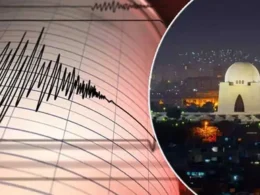The diplomatic rift between India and Pakistan widened further after Indian authorities issued a response to recent remarks made by Pakistan’s Chief of Army Staff (COAS), Field Marshal Syed Asim Munir, during his ongoing visit to the United States.
In a statement issued by India’s Ministry of External Affairs (MEA), New Delhi accused Pakistan of “nuclear sabre-rattling” and called Munir’s comments “irresponsible” and “dangerous.”
The MEA’s statement came in response to the Pakistani army chief’s claims that India was destabilizing the region and supporting transnational terrorism through its intelligence agency, RAW.
During his address to the Pakistani diaspora in the US, Munir issued a stern warning to India, stating that any aggression would be met with a “forceful and befitting response.”
He criticized India’s attempts to project itself as a “Vishwaguru” (world leader) and cited incidents such as the killing of a Sikh leader in Canada and the arrest of Indian naval officers in Qatar as evidence of alleged Indian misconduct.
India, however, pushed back firmly. “Nuclear sabre-rattling is Pakistan’s stock-in-trade,” the MEA said, adding that such rhetoric raises serious concerns about the integrity of Pakistan’s nuclear command and control, especially in a country where, it alleged, the military operates “hand-in-glove with terrorist groups.”
India also expressed disapproval that such remarks were made from the territory of a third country – one considered friendly to both sides – calling it “regrettable.”
The Indian government reiterated its stance, declaring that it “will not give in to nuclear blackmail” and is prepared to take all necessary steps to protect its national security.












